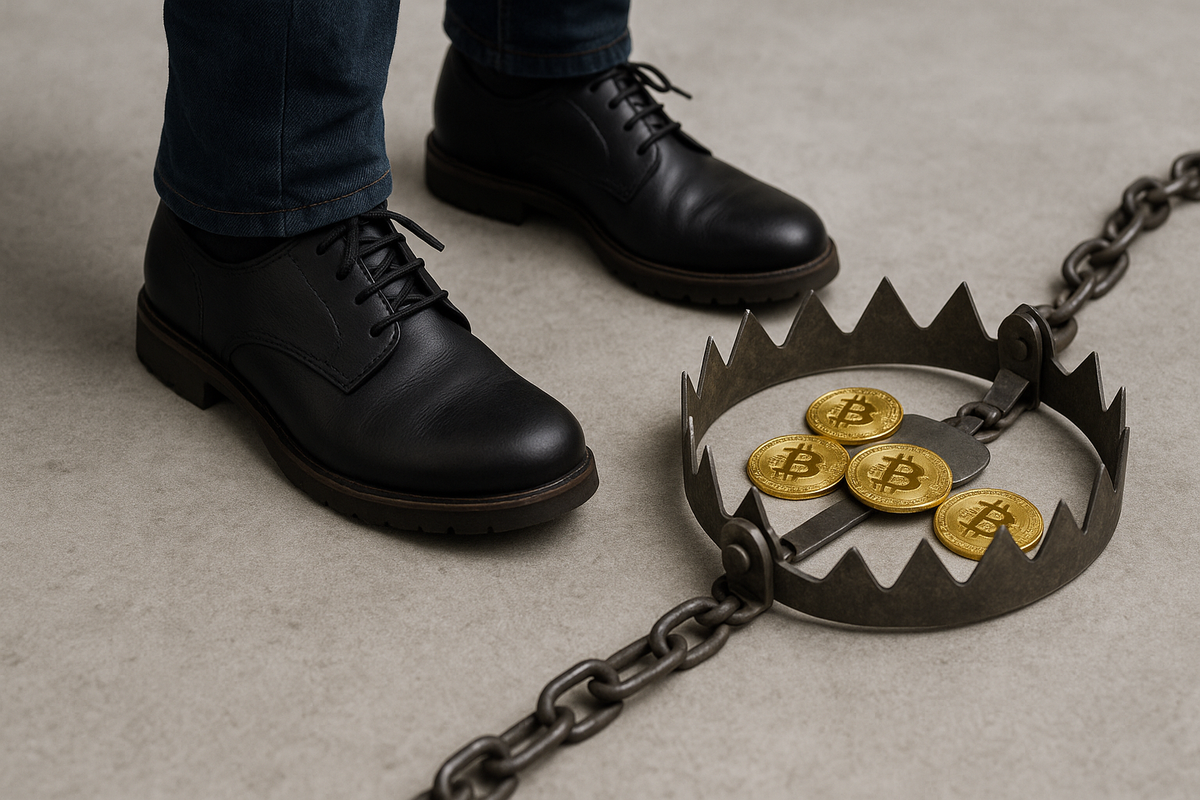Beginners keep falling for crypto traps but here’s how to dodge it
Crypto doesn’t have a refund button. Here’s how to avoid the wallet apps, fake coins and shady traders waiting to drain your funds.

New to crypto? You’re exactly who the scammers are hoping to catch. From dodgy wallet apps to fake investment groups, the traps are evolving faster than the tech itself. Here’s how to avoid the biggest mistakes before they cost you more than your curiosity.
You’re not paranoid. They really are trying to scam you. From fake crypto wallets to phishing emails that look like they’ve been through corporate PR, crypto scams are cleaner, smarter, and way faster than the "Urgent Inheritance” email classics of the early 2000s.
Whether you're buying your first Bitcoin or just downloaded your third exchange app because 'this one has zero fees', here’s how to dodge the biggest traps.
Stop googling “Best Crypto App”
That top search result with a slick logo and five-star rating? It might not even be real. Scammers use paid ads to rank fake exchanges and wallet sites that look almost identical to the real thing. If you’re about to sign up or transfer anything, triple-check the URL. Use official links from app stores or the company’s verified site. Bookmark it; don’t freestyle.
Never click links in DMs. Ever.
No, Vitalik Buterin did not personally message you with an Ethereum giveaway. No, Elon Musk isn’t asking for your wallet address.
If it came through Instagram, Twitter, Discord, or Telegram, assume it’s bait. Scammers love to pose as trusted influencers or even copy real profiles.
Delete. Block. Move on.
Use cold wallets for anything you can’t afford to lose
Hot wallets (apps that stay connected to the internet) are easy targets for malware and phishing. If you’ve bought more than R1,000 worth of crypto, consider getting a cold wallet. This is a USB-style device that stores your keys offline. It’s the crypto version of putting your cash in a fireproof safe instead of under your mattress.

Two-factor everything or risk losing everything
If your crypto app, wallet, or exchange doesn’t offer two-factor authentication (2FA), run. The good ones let you add an extra verification step through apps like Google Authenticator. This makes it way harder for anyone to access your account, even if they somehow grab your password. Set it up. Today.
“If an app asks you to ‘double your Bitcoin’ or promises passive income from a mystery coin, you’re not investing. You’re donating.”
Never trust a promise of “guaranteed returns”
If someone’s promising you consistent profits from 'Automated trading', or a 'Private coin investment', it’s almost always a Ponzi scheme or exit scam. Real crypto prices swing like a drunk springbok. No one can guarantee returns, especially not overnight. If it sounds too good to be true, it’s a rug pull in progress.
Check before you invest - then check again
Research doesn’t mean watching one YouTube video with moody lighting and trap beats. Look up the project’s whitepaper, founders, tokenomics, and reputation.
Sites like CoinMarketCap, CoinGecko, and even Reddit are helpful in sniffing out red flags, and if you don’t understand how something works? Do not invest. No shame in sitting out a coin you can’t explain.

The bottom line? If you’re new to crypto, assume you’re being targeted, because you are. The more careful you are with your information, wallets, and hype radar, the less likely you are to end up in a thread called 'How I lost everything in 48 hours.'
Not all coins are cash grabs. If you want to see what a locally-grown crypto project looks like when it's done with a bit of thought, and a lot of sheep, check out this sharp piece in our sister publication, Karoo Times, about KarooCoin.





Comments ()